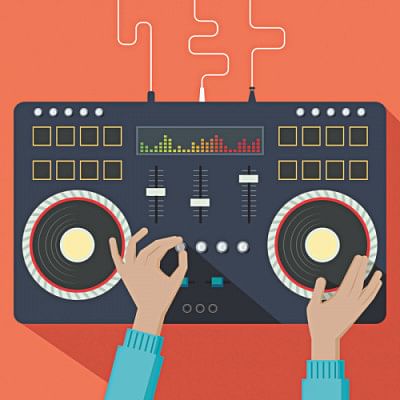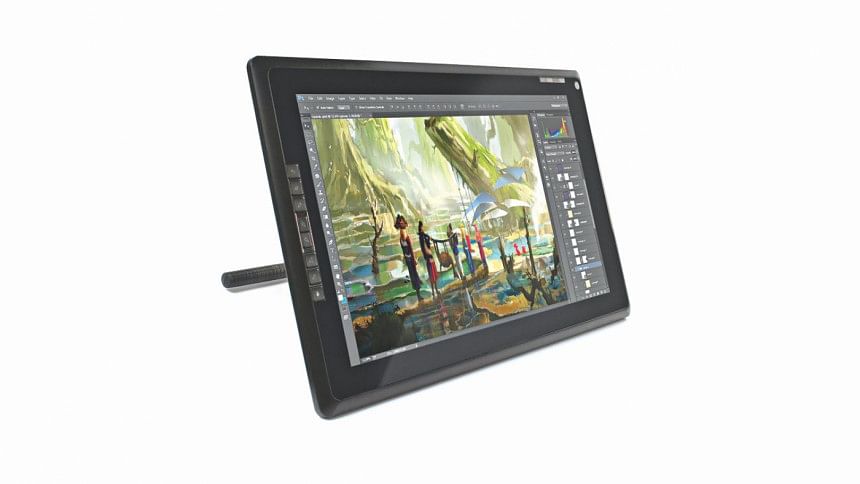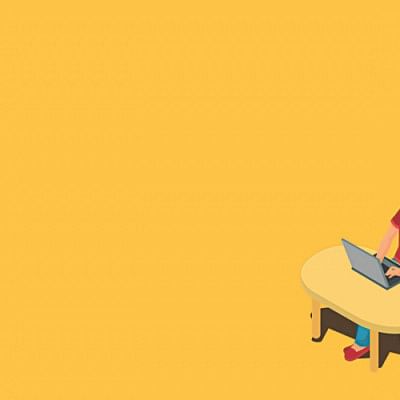Art in a Digital World

Digital media is helping push forward the frontiers of the arts to a whole new arena. Your music is no longer in the form of a CD, but on your phone instead. Your stories go on a "doc file" instead of on paper. Even the illustrations on this page are most likely done digitally.
Technology hasn't just changed the way we interact with our art, but also how our art interacts with our audience. The many different forms of art each have newer mediums and instruments to aid artists on their path to attaining the largest possible audience.
The last two decades have seen great strides being made in the development of tools and the platforms we use to make and share our art. Writers and artists have the convenience of blogs such as Blogger, while musicians have streaming platforms like Spotify and SoundCloud.
Alongside the added level of convenience and possibility of reaching a larger audience, there's also the fact that these digital tools help in propelling our art to a whole new level.
MUSIC
The music industry is probably the one to have experienced the greatest changes. A decade ago, record sales were still a big proportion of how artists distributed their music. However, in the last decade, streaming seems to have taken over. A report from Reuters published on April 24, 2018 showed how streaming platforms such as Spotify, Apple Music, etc. have become the largest source of revenue for the music industry.
Such digital platforms have paved the path for the music industry to reach a larger audience than ever before. Additionally, tools such as Logic, Ableton Live, ProTools, FL studio, etc. have also enabled musicians to create songs using samples and MIDI based tools.

When talking about how digitalisation has affected the industry, Kadin Ehsan Imdad, an EDM producer, had this to say, "It's a tough question to answer. A lot of good things have happened to the industry thanks to YouTube, SoundCloud and Spotify, but there have been some drawbacks as well. From the perspective of musicians, it has given way for more opportunities. One can now share music to a large audience, which they can easily create in their own bedrooms. Musicians don't even need record labels to put their music out there. SoundCloud alone helped musicians like ZHU, EDEN and the late XXXTentacion achieve worldwide recognition. However, this easy accessibility also means that anyone can put their music on YouTube and SoundCloud, thus increasing the amount of competition you have to deal with. The chances of success become slimmer as more musicians enter the market."
When talking about how digital tools helped him, Imran Ahmed of The Imran Ahmed Trio fame said this, "For me, personally, it never directly helped in making music. In my opinion, melodies cannot be articulated well in digital form, and they don't resonate with my taste, at least. However, I think it's helpful to create reference samples on software initially, but the final end product is much better if recorded live with instruments. I also appreciate music writing software like Sibelius, where you can make notations of your compositions, as well as play them back with sample sounds."
When asked about the state of the industry and monetisation in this digital world, he added that, "It's difficult to actually make money through streaming, unless you have millions of listeners on a regular basis. On the other hand, it's much easier to put your music out there and get started with a music career, even though the pay is literally non-existent. However, streaming aside, making money through music in general is easier through endorsements and affiliate marketing for music accessories, mostly if you have a good online following. Also, it's easier for big organisations to find your music and book you for different events. These usually pay well, and this process is much more simplified now that we don't have to go through third parties and agents, thanks to digitalisation."
ART
In the world of art, more and more traditional artists are switching to a digital medium of creation. The use of graphic tablets to input drawings and sketches directly into a computer, and then using software like Photoshop and Illustrator for post-production has become the new norm.
The scope for monetisation has changed. Faster paced workflow due to the aid of software means freelance artists have a greater opportunity to do commission work, thus improving their ability to earn more, as well as create a list of regular clients.
Talking with Samir Asran Rahman, the CEO and Creative Director of Mighty Punch Studios (MPS), helped shed some light on the topic. When discussing how useful publishing platforms such as DeviantArt, Instagram, Facebook, Pinterest and Dribble have been, Rahman had this to say, "Previously artists would have to hold art exhibitions, but not everyone can easily organise and participate in such exhibitions. Having websites like DeviantArt, Instagram, etc. open up the doors to a wider audience. I, personally, have hired artists for MPS after seeing their work on Facebook pages like Akantis and Cartoon People."

Additionally, when talking about how such tools and platforms have affected the state of the industry, he said this, "The cost of entry is definitely higher if you want to start digitally, but there are definitely more jobs available, mostly for digital artists at present. At MPS, even though all of the artists learned how to draw using traditional methods and tools, we all work with tablets and software because the workflow is much faster. For instance, drawing directly into the computer means you're saving time as opposed to drawing on paper and then scanning the drawing."
Digitalisation hasn't made art a viable profession or hobby for everyone. There is definitely a learning curve when it comes to using some of these tools and platforms. Similar to how one has to learn to draw, artists must also learn the software which will aid them in their craft. Thankfully, however, there are a great number of resources available for those willing to dedicate the time and effort into learning such software.
This coupled with the fact that gaining recognition is a bit more easier means that artists have a better playing field now than ever before.
LITERATURE
In the literary world, getting published has always been somewhat of a nightmare scenario. Ask any published writer, and you'll hear how difficult the process of turning their stories into a publishable book actually was.
At the helm of all the difficulties associated with getting published is finding a publisher/publishing house that will print your work. Without proper recognition or portfolio, getting any book out in print form becomes an almost impossible task.
However, thanks to the availability of websites like Wattpad, Medium, WordPress and Blogger, writers can now easily publish their work for a wider audience online. Finally, the availability of resources such as Grammarly make it easier for writers to proof their work before publishing it.

When asked about the benefits of a digital world for writers, Yaamen Al-Muttaqi, a sub-editor for Myriad magazine and a published writer, had this to say, "More than anything, it's much easier to get constructive criticism, and inspiration, whether it be from friends or strangers on the internet. Content on Facebook, Tumblr, and Reddit also helped inspire me at some points in the past to create things based off of them. It's also so much easier to archive ideas and aesthetics, mood boards, and storyboards. Making and sharing online documents about characters and settings is also really fun and can help flesh ideas out too. Then there is of course the accessibility of tools for grammar and spelling."
Discussing some of the online tools and resources he uses regularly, he said, "WorldAnvil is an online tool that recently launched and has amazing tools for worldbuilding, helping to flesh out and publish any fictional setting you might be working on. Additionally, there's plenty of online generators now that help with naming characters and creating fictional maps. On top of that, Facebook and Discord groups are great for getting your work critiqued amongst peers."
In the past, for a young and upcoming writer, the only way to gain an audience was to get published in magazines or newspapers. Now, there are so many avenues for a writer to take to gain an audience, either through online magazines, websites, or blogs.
If there's anything to take away from this article, it's that while the steps to becoming an artist really hasn't changed, there are now more paths to becoming a successful one than there had ever been in the past.
References
https://www.reuters.com/article/music-sales/music-streaming-overtakes-physical-sales-for-the-first-time-industry-body-idUSL8N1S143H
Aaqib loves petting doggos. Send him pictures of your ''good boys'' at [email protected]





Comments